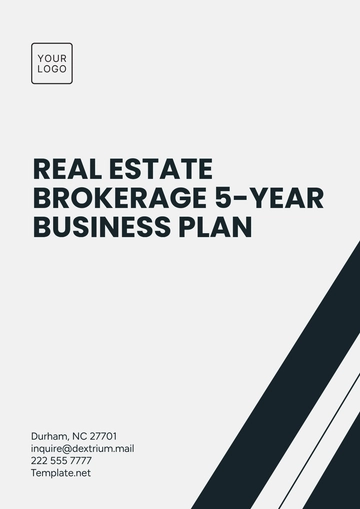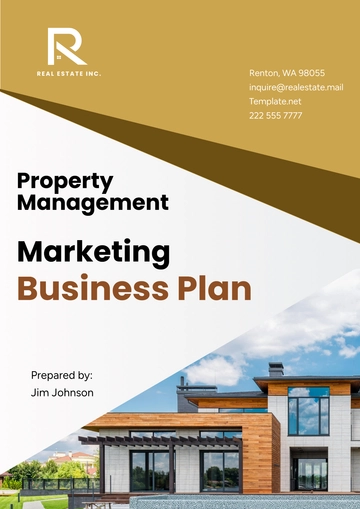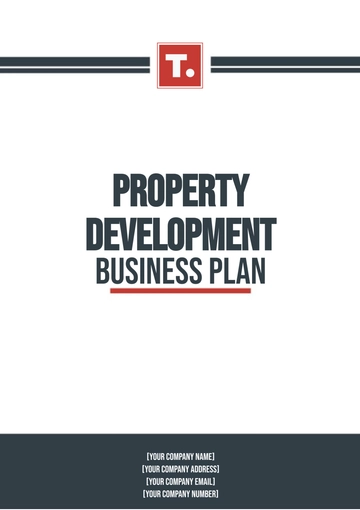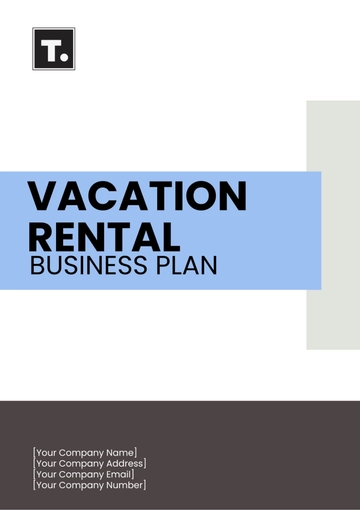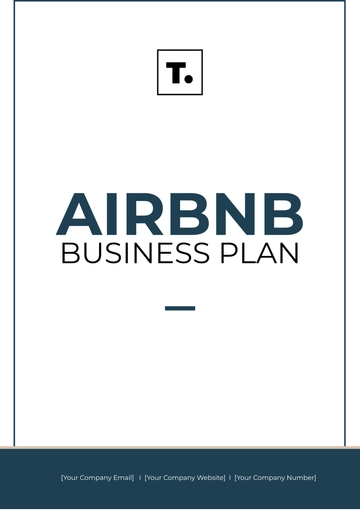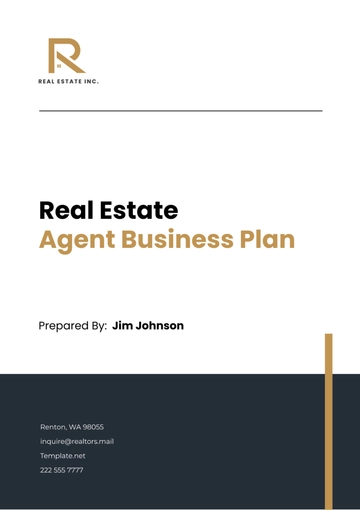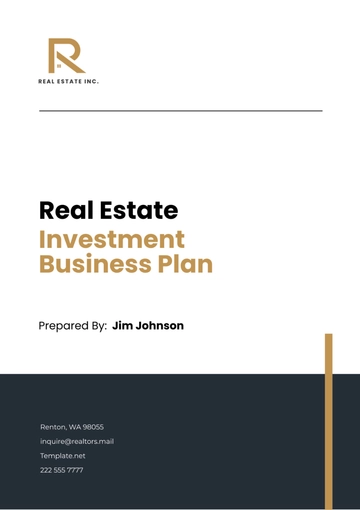Free Real Estate Investment Business Plan
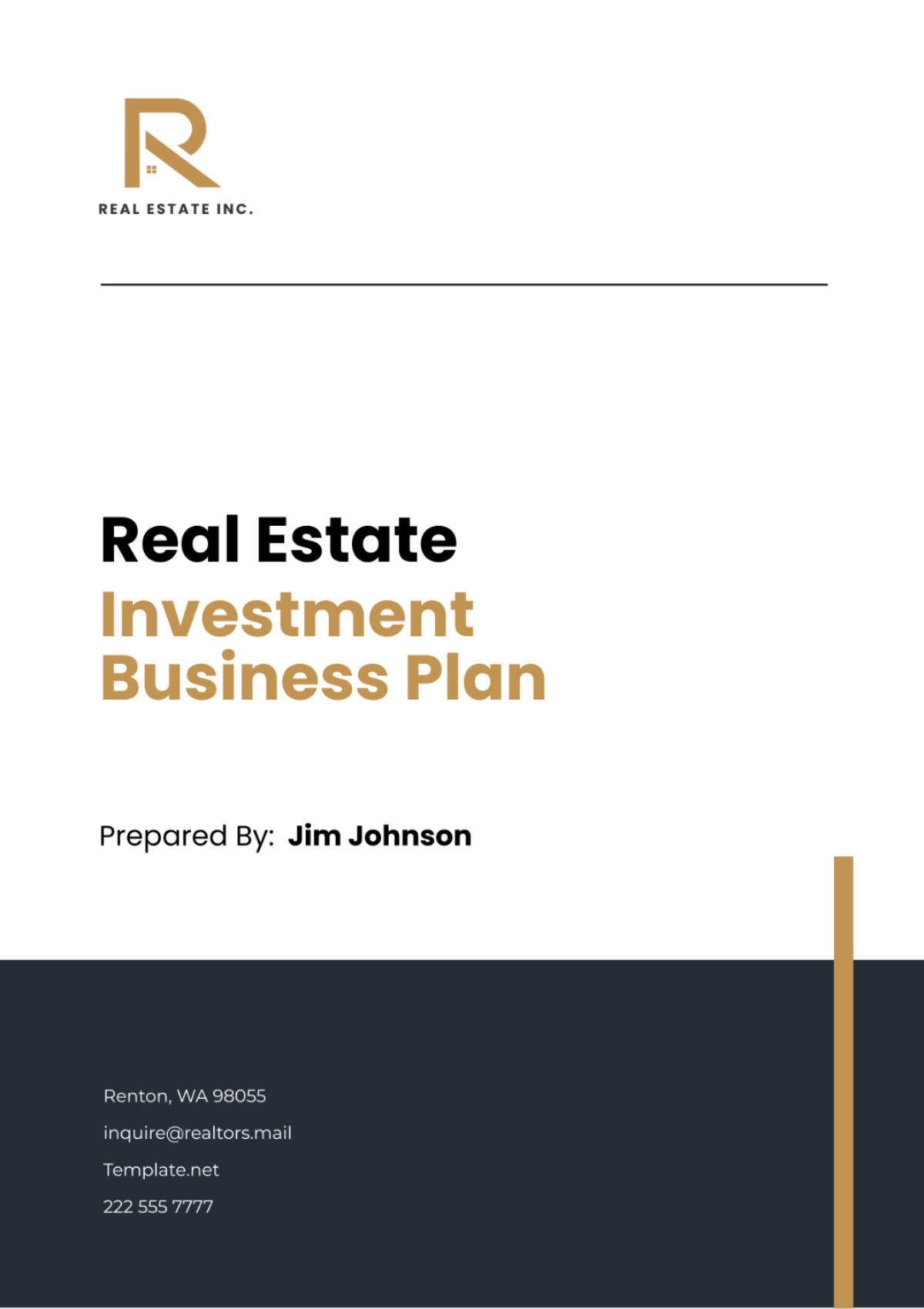
I. Executive Summary
Business Overview:
[Your Company Name] is a forward-thinking real estate investment company based in [Your Company Address], specializing in acquiring, developing, and managing residential properties with high growth potential. Our mission is to generate sustainable, long-term wealth for our investors through strategic real estate investments.
Objectives:
Achieve a portfolio value of $50 million within the next five years.
Maintain an annual growth rate of 15% in portfolio value.
Establish a solid presence in the [Maine] real estate market.
The Opportunity:
The real estate market in [Maine] is ripe for investment, with rising demand for rental properties and a steady increase in property values. [Your Company Name] intends to capitalize on this trend by focusing on under-valued residential properties in high-growth areas.
The Strategy:
Our investment strategy centers on acquiring properties below market value, enhancing them through targeted renovations, and either selling them for a profit or renting them out to generate steady cash flow.
Financial Highlights:
Projected to achieve a 20% return on investment (ROI) within the first year of operations, with a steady increase to 25% ROI by year three. Initial funding requirement is $10 million, aimed at acquiring and developing the first set of properties.
II. Business Description
Company Structure:
The company that operates under your specified name is structured as a Limited Liability Company, also known as an LLC. This particular business entity structure allows for a significant amount of flexibility in terms of the operations of the business. Furthermore, it also offers substantial legal protection for our business stakeholders such as our investors and our owners, thereby ensuring that their personal assets are not put at risk in case of any legal issues that might arise in relation to the business.
History:
Founded in [Year] by a group of experienced real estate professionals and investors, [Your Company Name] leverages market insights, operational expertise, and a robust network to identify and capitalize on real estate opportunities.
Location and Facilities:
Headquartered in [Maine], with plans to expand our operational footprint to other high-growth urban areas within the next five years.
Market Niche:
Specializing in residential properties, including single-family homes, duplexes, and small apartment buildings, particularly those requiring renovation or repositioning within the market.
III. Market Analysis
Industry Overview:
The real estate industry in [Maine] has demonstrated resilience and growth despite broader economic fluctuations. With an annual growth rate of 4% over the past five years, the market is buoyed by consistent demand for housing, driven by demographic shifts and economic development in the area. A surge in remote working has also increased the demand for residential properties that offer flexible living spaces.
Target Market:
Our analysis identifies two primary target markets. The first consists of young professionals and small families seeking rental accommodations that offer modern amenities, convenience, and safety. This demographic values properties located close to employment hubs, educational institutions, and lifestyle amenities. The second target market includes middle-income investors looking for opportunities to diversify their investment portfolios with real estate assets that promise solid returns and capital appreciation.
Competition Analysis:
We face competition from both direct investment firms and indirect competitors such as real estate investment trusts (REITs) and online investment platforms. However, our competitive edge lies in our local market knowledge, hands-on approach to property improvement, and personalized investor relations. A SWOT analysis reveals:
Strengths: Expert team, local market knowledge, agility. | Weaknesses: Limited initial capital, brand recognition. |
Opportunities: Growing demand for housing, potential for urban redevelopment projects. | Threats: Economic downturns, rising interest rates, regulatory changes. |
Regulatory Environment:
The real estate market is subject to a myriad of regulations, from federal fair housing laws to local zoning and building codes. [Your Company Name] is committed to compliance and has engaged a legal team to navigate the complex regulatory landscape, ensuring that all investment activities adhere to the highest legal and ethical standards.
IV. Marketing and Sales Strategy
Marketing Plan:
Our marketing strategy leverages a combination of digital marketing tactics and traditional outreach to connect with both potential tenants and investors. Key components include:
A user-friendly website showcasing our properties, with virtual tours and online application capabilities.
Social media campaigns aimed at increasing brand visibility and engaging with potential customers.
Networking with local businesses and community organizations to foster partnerships and referrals.
Hosting open house events for investors and potential tenants to physically experience the quality and potential of our properties.
Sales Strategy:
For properties designated for sale, we will employ a targeted sales approach:
Collaborating with reputed local real estate agents who have a strong track record of sales in our target market areas.
Pricing strategies that balance competitiveness with the goal of maximizing returns for our investors.
Customized staging of properties to highlight their best features and attract higher offers.
Customer Service:
For rental properties, [Your Company Name] is dedicated to providing excellent tenant services, which include:
An easy and transparent application and leasing process.
A 24/7 responsive maintenance team to address tenant needs promptly.
Regular updates and communication through tenant newsletters and community events.
V. Investment Strategy
Investment Criteria:
Our rigorous investment criteria ensure we target properties with the highest potential for value creation. Criteria include:
Properties in neighborhoods with strong indicators of growth, such as new employment opportunities, infrastructure developments, and increasing rental demand.
Under-valued properties that, with strategic renovations, can significantly increase in market value.
Properties offering diverse investment opportunities, including short-term flips and long-term holds for rental income.
Sourcing Deals:
Deals are sourced through multiple channels to ensure a robust pipeline of investment opportunities:
Direct outreach to homeowners via mailers and digital marketing.
Partnerships with local real estate agents and brokers who specialize in foreclosures and distressed properties.
Attendance at real estate auctions and networking events to identify off-market deals.
Financing Strategy:
We aim to structure financing arrangements that minimize risk while maximizing investment returns. Strategies include:
Leveraging relationships with financial institutions for favorable loan terms.
Syndicating larger deals among multiple investors to spread risk.
Exploring creative financing options such as seller financing and lease options.
VI. Operations Plan
Operational Workflow:
Our operational model is designed for efficiency and effectiveness, from acquisition through management:
Acquisition: Rigorous due diligence processes to assess each property's potential, followed by swift execution to secure deals.
Renovation: Implementation of cost-effective renovation plans that enhance property value and appeal, overseen by our experienced project management team.
Marketing: Tailored marketing plans for each property, utilizing digital and traditional channels to attract the right buyers or tenants.
Management: Professional, in-house property management for rental properties, focusing on tenant satisfaction and property maintenance.
Technology and Systems:
Investment in state-of-the-art technology systems underpins our operational efficiency:
Property management software for streamlined operations, from lease management to maintenance requests.
CRM systems to manage investor relations and communications effectively.
Financial modeling tools to analyze potential investments and monitor the performance of the portfolio.
Risk Management:
Identifying and mitigating risks is integral to our operations plan. Key strategies include:
Market Risk: Diversifying our property portfolio across different geographic areas and property types to mitigate the impact of local market downturns.
Financial Risk: Maintaining conservative debt levels and securing fixed-rate financing where possible to protect against interest rate volatility.
Operational Risk: Implementing rigorous property management protocols and maintaining a reserve fund for unexpected repairs or vacancies to ensure properties remain profitable and well-maintained.
By adopting a comprehensive approach to risk management, [Your Company Name] aims to safeguard investments and ensure stable, long-term returns for our investors. Our commitment to operational excellence, combined with our strategic investment and marketing strategies, positions us to capitalize on the growth opportunities within [Maine]'s real estate market. With a focus on sustainability, community, and value creation, [Your Company Name] is poised to become a leader in the real estate investment industry, delivering exceptional outcomes for our stakeholders and the communities we serve.
VII. Financial Plan
Revenue Model
[Your Company Name]'s revenue will be generated through a multifaceted approach, reflecting the diversity of our investment strategies. Our primary revenue streams will include:
Rental Income: Monthly rental payments from tenants of our residential properties. We aim to acquire properties in high-demand areas to ensure competitive rental rates and low vacancy rates.
Property Sales: Profits from the sale of properties that have been purchased, renovated, and sold at market value. Our target is to achieve a gross margin of 20-30% on these sales.
Management Fees: For properties not directly owned by [Your Company Name], we will offer property management services, charging a fee of 8-10% of the monthly rental income.
Consulting and Advisory Fees: Fees for providing real estate investment consulting services to third-party investors.
Financial Projections
Projected Income Statement (Year 1-3):
Item | Year 1 ($) | Year 2 ($) | Year 3 ($) |
|---|---|---|---|
Revenue | 1,200,000 | 1,800,000 | 2,500,000 |
COGS | 200,000 | 250,000 | 300,000 |
Gross Profit | 1,000,000 | 1,550,000 | 2,200,000 |
Operating Expenses | 600,000 | 700,000 | 800,000 |
Net Income | 400,000 | 850,000 | 1,400,000 |
Projected Cash Flow Statement (Year 1-3):
Item | Year 1 ($) | Year 2 ($) | Year 3 ($) |
|---|---|---|---|
Opening Balance | 500,000 | 780,000 | 1,510,000 |
Cash Inflows | 1,200,000 | 1,800,000 | 2,500,000 |
Cash Outflows | (920,000) | (1,070,000) | (1,290,000) |
Closing Balance | 780,000 | 1,510,000 | 2,720,000 |
Projected Balance Sheet (Year 1-3):
Item | Year 1 ($) | Year 2 ($) | Year 3 ($) |
|---|---|---|---|
Assets | 2,000,000 | 3,500,000 | 5,500,000 |
Liabilities | 1,000,000 | 1,200,000 | 1,400,000 |
Equity | 1,000,000 | 2,300,000 | 4,100,000 |
Funding Requirements
To launch and scale our operations, [Your Company Name] requires an initial investment of $5 million. This funding will cover property acquisitions, renovations, operational costs, and a reserve fund for unexpected expenses. We anticipate the need for an additional $3 million over the next three years to finance growth and expansion. Current funding stands at $2 million, comprising founder contributions and early investor commitments.
Investment Analysis
Our ROI analysis projects an average return of 20-25% across our investment portfolio. Key factors underpinning these returns include:
Strategic acquisition below market value.
Value-add through targeted renovations and improvements.
Efficient property management to maximize rental income and minimize vacancies.
Timely divestment based on market conditions to realize capital gains.
We leverage detailed financial modeling to assess each potential investment, considering acquisition costs, renovation expenses, projected income (rental or sale), and holding costs. Our conservative projections ensure that we account for market fluctuations and potential risks, aiming to provide transparent and realistic returns to our investors.
In closing, [Your Company Name] stands at the forefront of an exceptional opportunity within the real estate market of [Maine]. Our meticulously crafted business plan lays the foundation for a venture that combines innovative investment strategies, robust operational frameworks, and a keen understanding of our market to ensure not just profitability, but also positive community impact and sustainable growth.
We are driven by the vision of transforming under-valued properties into valued homes and spaces, creating wealth for our investors while fostering vibrant communities. Our commitment to excellence, combined with our comprehensive approach to market analysis, risk management, and investor relations, positions us to achieve and exceed our ambitious goals.
As we embark on this journey, we invite potential investors, partners, and team members to join us in realizing the potential of [Your Company Name]. Together, we have the opportunity to shape the future of real estate investment in [Maine], generating lasting value for all stakeholders involved.
Thank you for considering [Your Company Name] as your partner in real estate investment. We look forward to a future of shared success and mutual growth.
- 100% Customizable, free editor
- Access 1 Million+ Templates, photo’s & graphics
- Download or share as a template
- Click and replace photos, graphics, text, backgrounds
- Resize, crop, AI write & more
- Access advanced editor
Drive your investment success with the Real Estate Investment Business Plan Template from Template.net. This editable, customizable template, enhanced with our AI Editor Tool, lays the foundation for your investment strategy. Tailor it to reflect your unique vision and goals, ensuring a solid path to profitability. Perfect for investors, elevate your real estate portfolio with Template.net today!
You may also like
- One Page Business Plan
- Coffee Shop Business Plan
- Restaurant Business Plan
- Food Business Plan
- Real Estate Business Plan
- Executive Summary Business Plan
- Cover Page Business Plan
- Nonprofit Business Plan
- Daycare Business Plan
- Construction Business Plan
- Startup Business Plan
- Medical Business Plan
- Bakery Business Plan
- Service Plan
- Hotel Business Plan
- Catering Business Plan
- School Business Plan
- Healthcare Business Plan
- Transportation Plan
- Sports Plan
- Car Wash Business Plan
- Salon Business Plan
- Clothing Business Plan
- Farming Business Plan
- Boutique Plan

